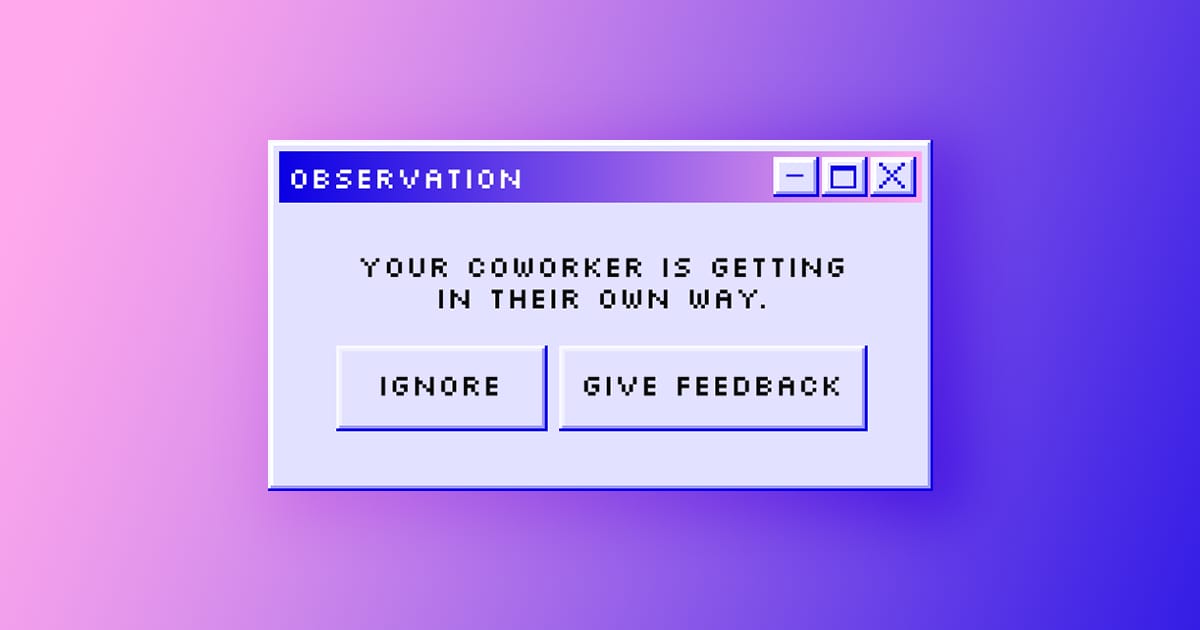
Have you ever had a teammate who just… holds themselves back? Maybe they’re always late, or write really unclear updates, or aren’t great at presenting their work. You can tell that this is really not helping them, and you’ve just been silently hoping they’ll figure it out for themselves.
Well… they’re probably not going to notice, so you should probably do something about it.

💕 Be kind, not nice.
If you’re avoiding giving feedback to avoid an uncomfortable conversation, then you’re also preventing your coworkers from developing. It might feel nice to not say anything, but it’s kinder to give people useful feedback.
People can’t improve something they don’t recognise is a problem, and you might be the only way they find out about it. So be brave and give them the feedback.
🙃 Can’t this just come from their manager?
Giving feedback is everyone’s responsibility, not just the people manager’s. They also aren’t always best positioned to give the feedback:
Managers aren’t often in the day-to-day of their team like you might be, so they might not have even noticed.
Sometimes people can behave or present differently around their manager.
Peer feedback can actually be more impactful and credible.
Feedback from your peers can feel less performance-manage-y and more like it’s because they’re looking out for you, so it sometimes can land better.
(Plus: you don’t always know what feedback has come from the manager. Maybe they’ve already given this feedback and it’s been ignored, or it’s an active area of development for them.)
💬 How to give the feedback
Great feedback is given from a place of caring personally, and the person you give feedback to – no matter how challenging it is – should be able to tell that you’re doing it from a place of kindness. If it helps, you can even open with this: “I want you to know that I’m sharing this with you because I really want you to succeed.”
If you need to brush up on a framework to use for feedback, check out this post from last year on the SBI model.
And if you’re willing to, you can also offer help:
Be accountability buddies if you’re working on something actively as well
Offer a second pair of eyes on their work before they send it off
Roleplay or practice something together
Check-in a few weeks from now to talk about it
Ask if they want you to bring it up again or let them work on it alone
👍 Closing the loop
If you see an improvement after a while, make sure to let them know that you’ve noticed their progress and that it’s making a real impact!
But if nothing changes, you might need to make a decision about what to do next:
If it’s worth escalating, chat to their manager and catch them up on the feedback you’ve given.
If you want to just try giving another nudge, gently speak to them again in a few weeks and remind them of the feedback, and offer them help if you hadn’t already.
Or, if it’s disappointing but it doesn’t really impact you, you might decide to just drop it.


It can feel really scary to give your peers feedback, but just remember – you’d want them to tell you if you were holding yourself back, so do them this kindness!


